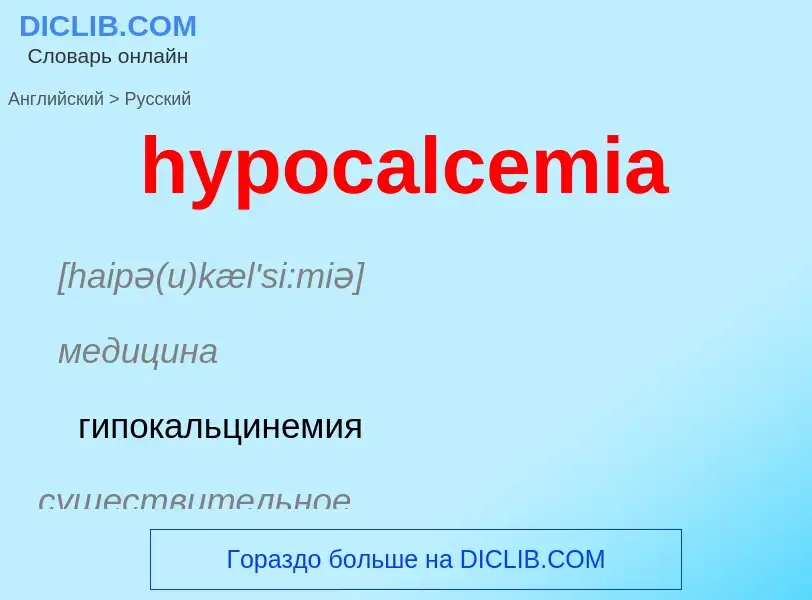Перевод и анализ слов искусственным интеллектом ChatGPT
На этой странице Вы можете получить подробный анализ слова или словосочетания, произведенный с помощью лучшей на сегодняшний день технологии искусственного интеллекта:
- как употребляется слово
- частота употребления
- используется оно чаще в устной или письменной речи
- варианты перевода слова
- примеры употребления (несколько фраз с переводом)
- этимология
hypocalcemia - перевод на русский
[haipə(u)kæl'si:miə]
медицина
гипокальцинемия
существительное
медицина
гипокальциемия
пониженное содержание кальция в крови
Определение
Википедия

Hypocalcemia is a medical condition characterized by low calcium levels in the blood serum. The normal range of blood calcium is typically between 2.1–2.6 mmol/L (8.8–10.7 mg/dL, 4.3–5.2 mEq/L) while levels less than 2.1 mmol/L are defined as hypocalcemic. Mildly low levels that develop slowly often have no symptoms. Otherwise symptoms may include numbness, muscle spasms, seizures, confusion, or cardiac arrest.
The most common cause for hypocalcemia is iatrogenic hypoparathyroidism. Other causes include other forms of hypoparathyroidism, vitamin D deficiency, kidney failure, pancreatitis, calcium channel blocker overdose, rhabdomyolysis, tumor lysis syndrome, and medications such as bisphosphonates or denosumab. Diagnosis should generally be confirmed with a corrected calcium or ionized calcium level. Specific changes may be seen on an electrocardiogram (ECG).
Initial treatment for severe disease is with intravenous calcium chloride and possibly magnesium sulfate. Other treatments may include vitamin D, magnesium, and calcium supplements. If due to hypoparathyroidism, hydrochlorothiazide, phosphate binders, and a low salt diet may also be recommended. About 18% of people who are being treated in hospital have hypocalcemia.



